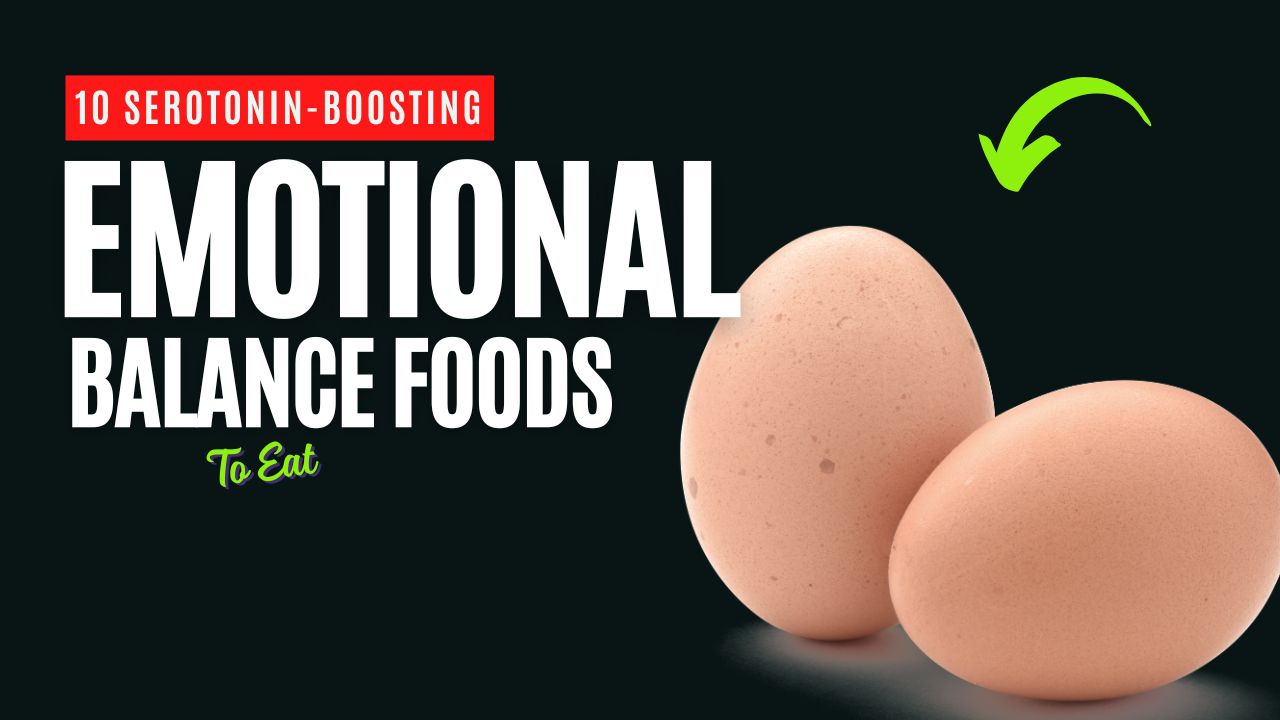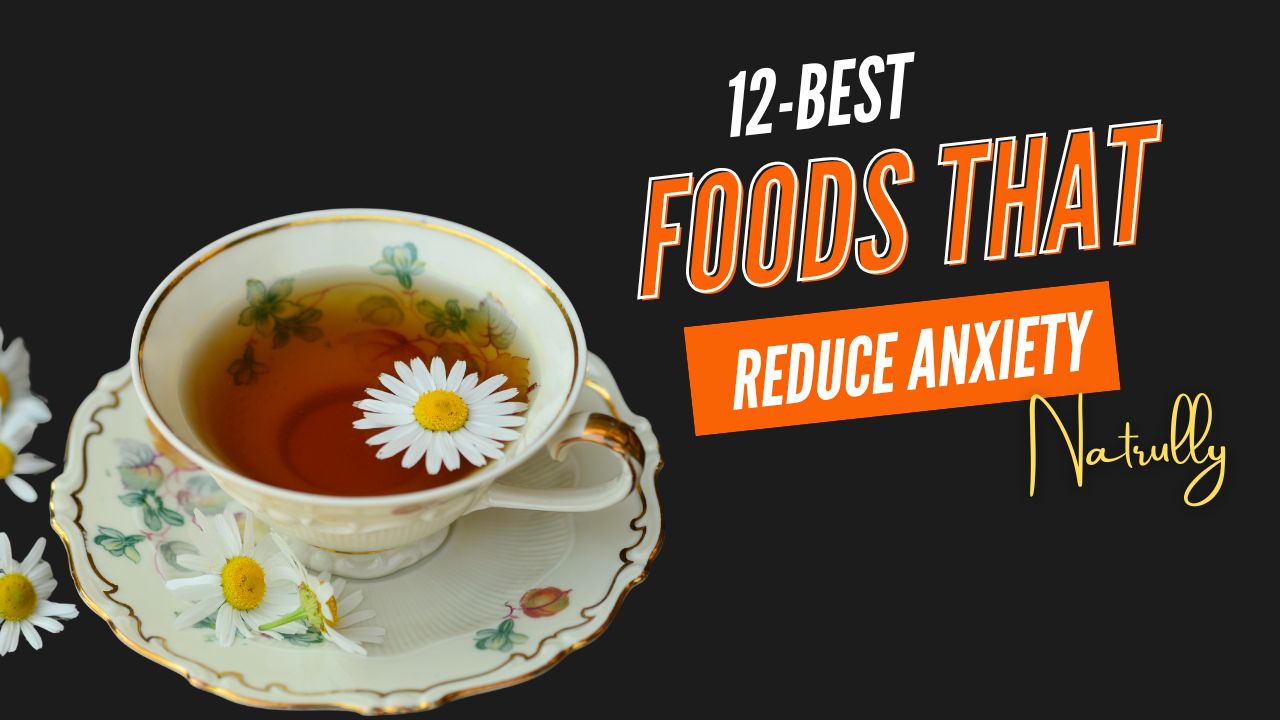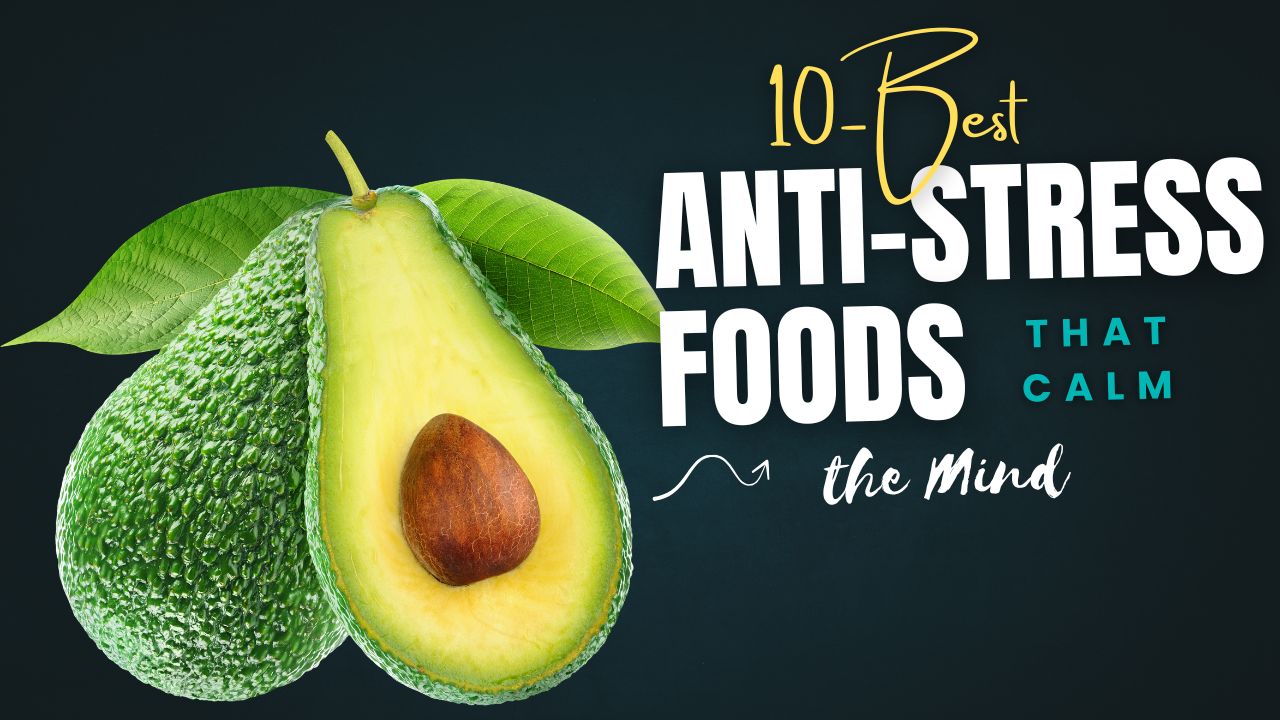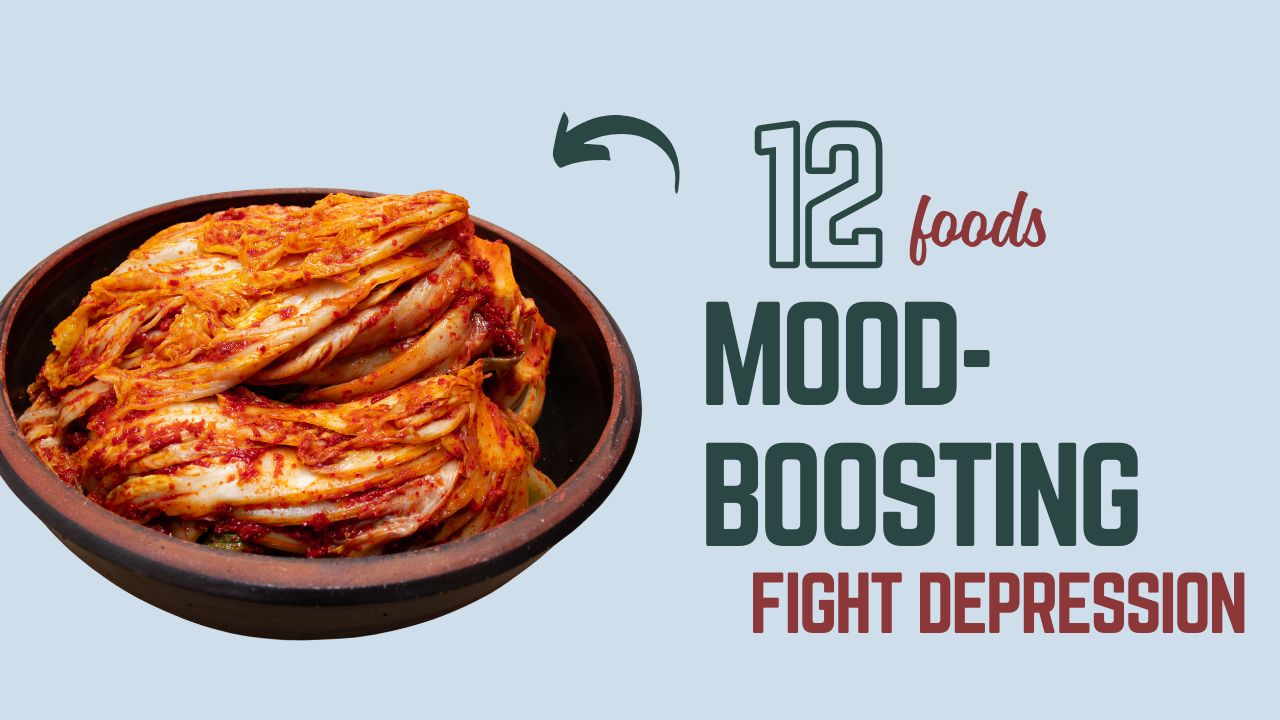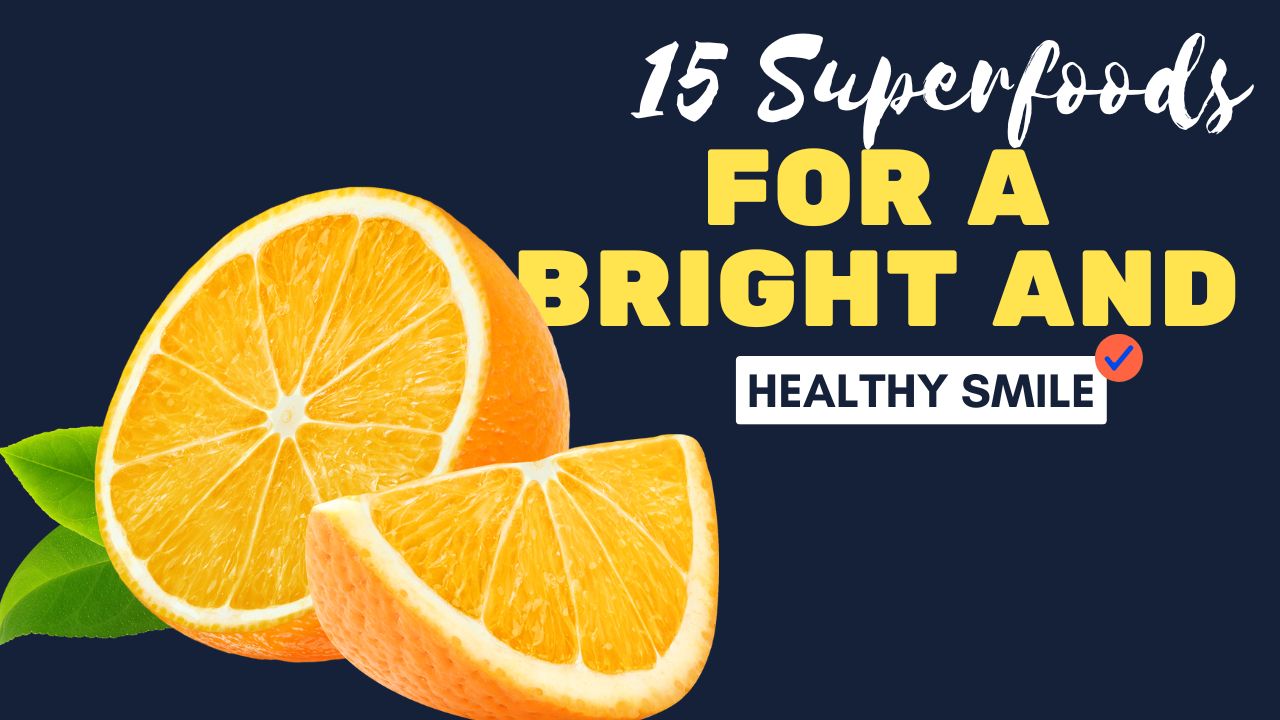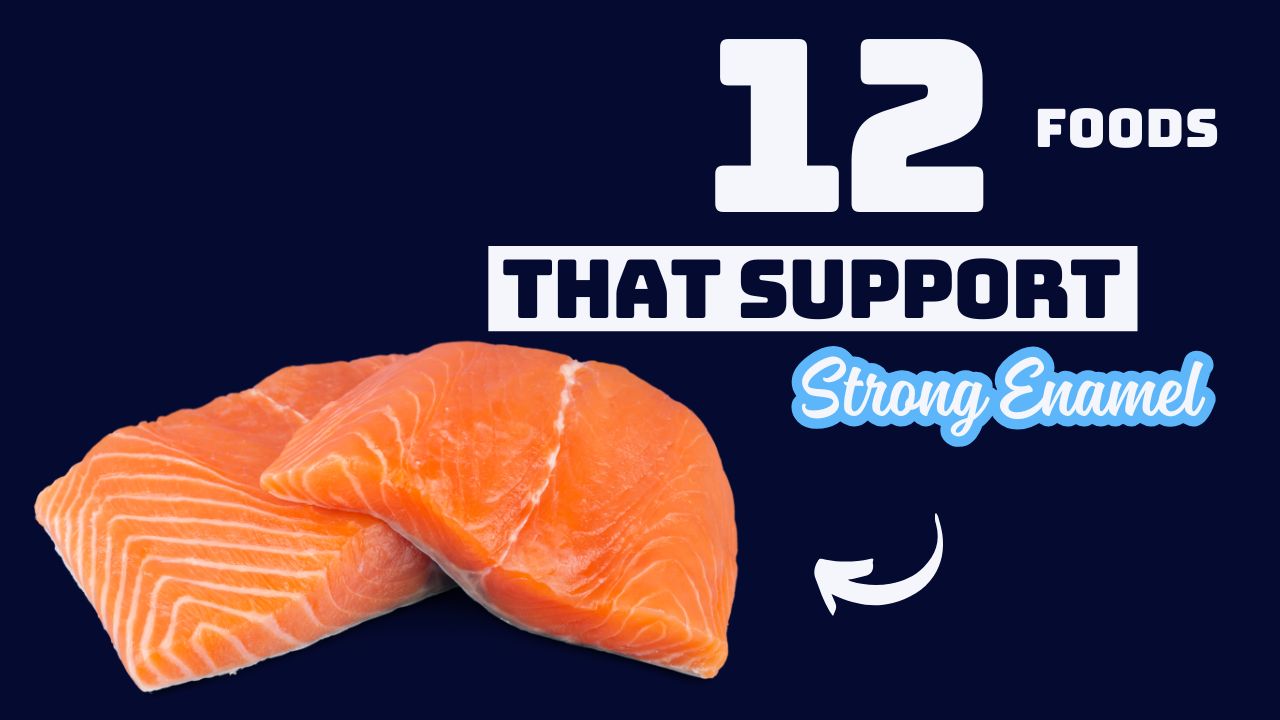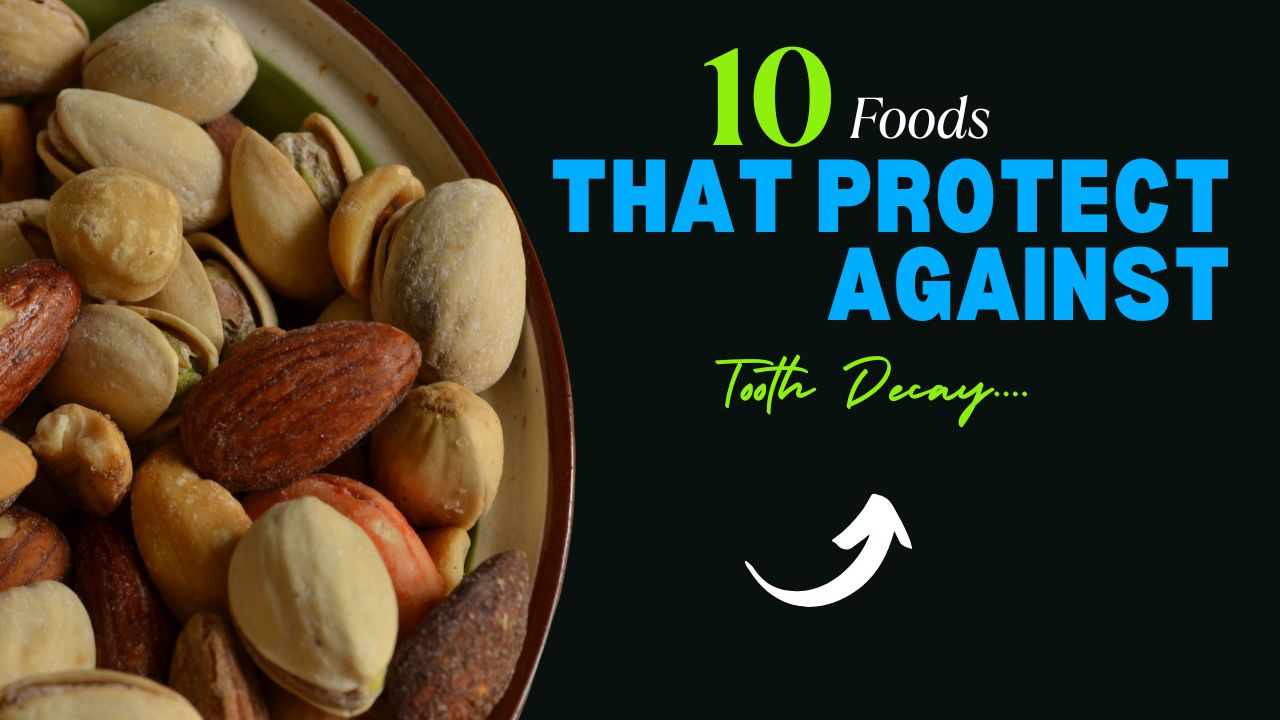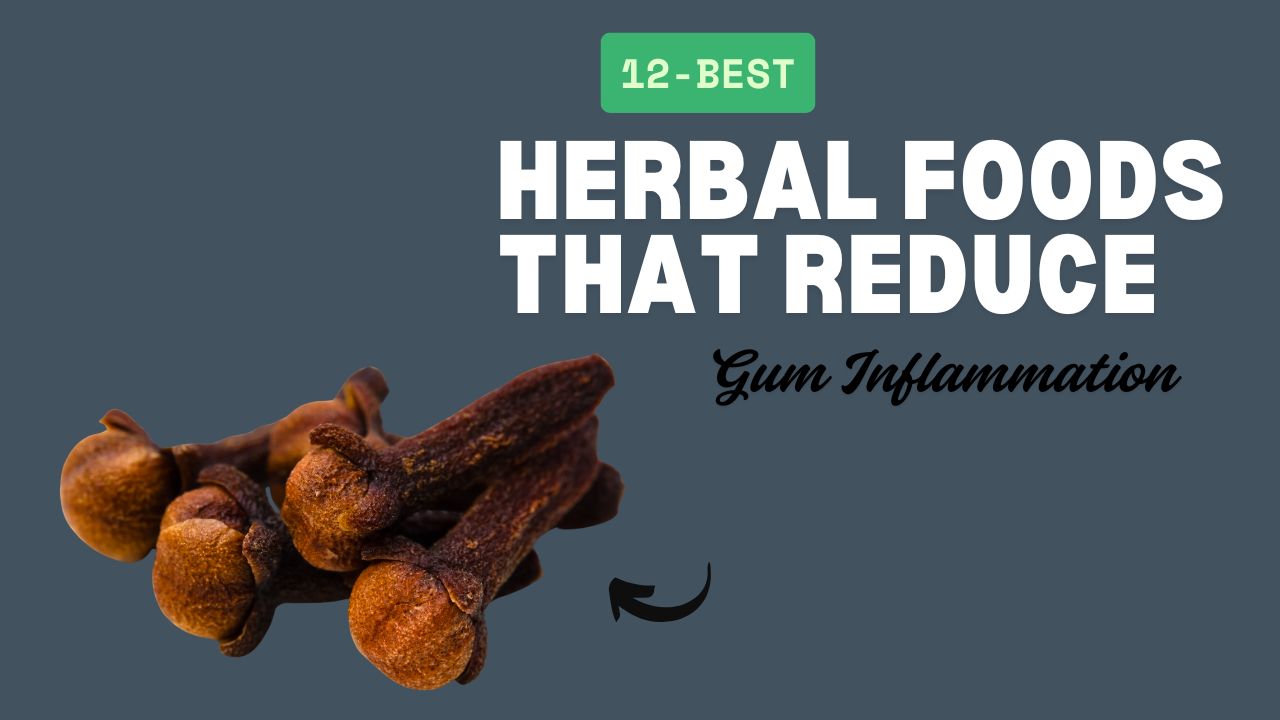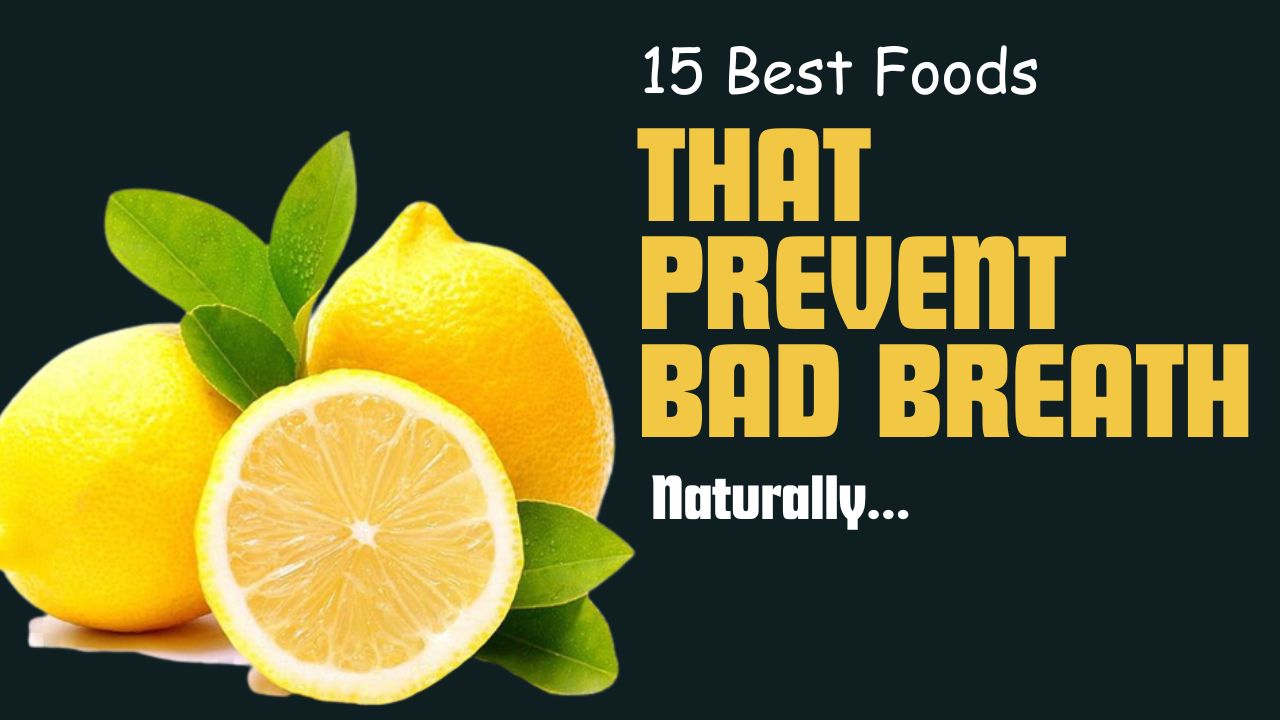Did you know that your diet could be just as important as brushing and flossing when it comes to maintaining fresh breath and strong teeth?
While many people believe oral hygiene depends solely on toothpaste, mouthwash, and dental visits, research shows that certain foods naturally fight harmful bacteria in the mouth.
These foods not only keep your smile healthier but also protect against gum disease, cavities, and bad breath.
In this guide, we’ll explore 12 powerful antibacterial foods that improve oral hygiene, backed by science. You’ll discover:
- Which foods help kill bad bacteria in your mouth
- The best ways to eat or use them daily
- Who should include (or avoid) them
- Storage tips to keep them fresh
- Do’s & Don’ts for maximum benefits
- Possible side effects to watch for
Let’s dive into the foods that can make your smile brighter and your breath fresher—naturally.
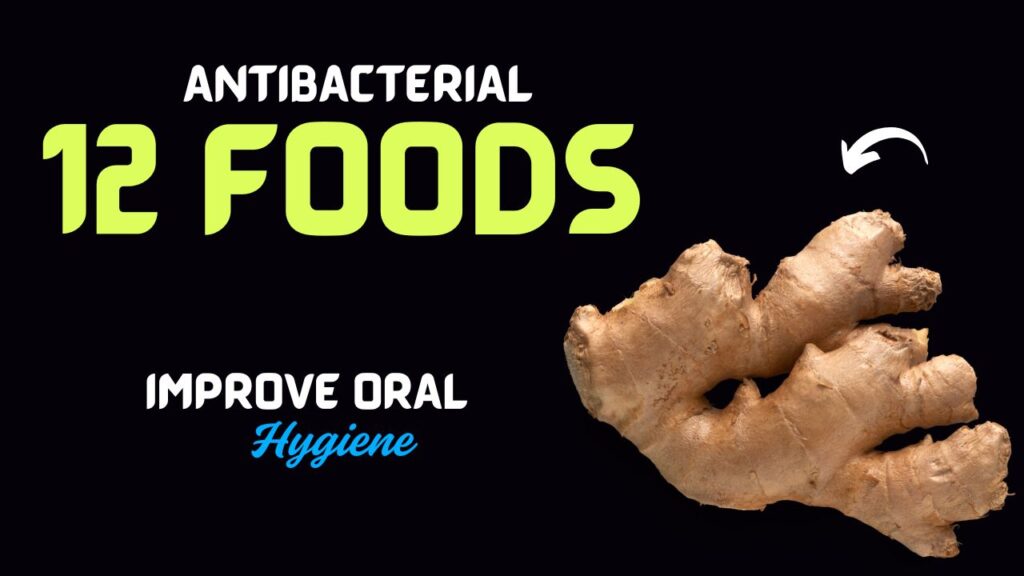
Table of Contents
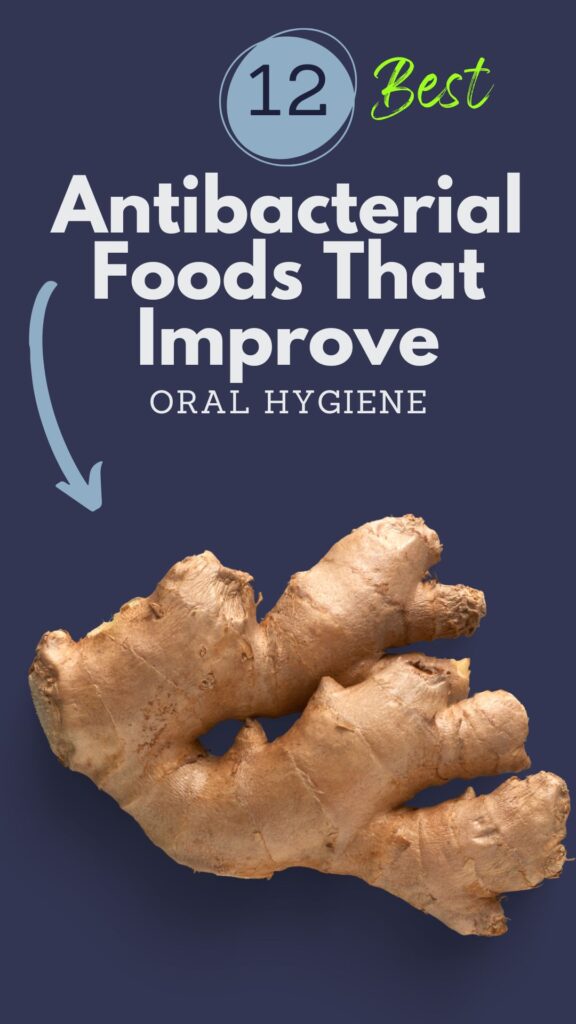
12 Best Foods For Oral Hygiene
1. Garlic
Garlic has been used for centuries as nature’s antibiotic. It contains allicin, a compound with strong antibacterial and antifungal properties that help kill oral pathogens responsible for gum infections and tooth decay.
Best Ways to Eat or Use It
- Crush fresh garlic and add it to soups, stews, or salad dressings.
- Chew a small raw clove for maximum antibacterial effects (if you can handle the strong taste).
- Combine with olive oil for dipping sauces.
Who Should Eat / Avoid
- Good for: people with weak immunity or those prone to frequent gum infections.
- Avoid if: you have acid reflux, ulcers, or are on blood-thinning medications.
Storage & Buying Tips
- Buy firm, dry bulbs.
- Store in a cool, dry place—avoid the refrigerator.
Do’s & Don’ts
✅ Do: crush or chop garlic before use to release allicin.
❌ Don’t: cook at high heat for too long—it reduces antibacterial power.
Possible Side Effects
- Bad breath and body odor.
- Stomach upset in some people.
2. Ginger
Ginger is not just for digestion—it also contains gingerol, which fights oral bacteria linked to periodontal disease.
Best Ways to Eat or Use It
- Drink fresh ginger tea after meals.
- Grate into stir-fries or soups.
- Add to smoothies for a spicy kick.
Who Should Eat / Avoid
- Good for: people with bad breath, as ginger neutralizes sulfur compounds.
- Avoid if: you’re pregnant in high amounts, or have gallstones.
Storage & Buying Tips
- Choose smooth, firm roots.
- Store in the fridge or freeze for long-term use.
Do’s & Don’ts
✅ Do: use fresh ginger for maximum potency.
❌ Don’t: rely on overly processed ginger candies—they’re high in sugar.
Possible Side Effects
- Excessive amounts may thin blood or cause heartburn.
3. Green Tea
Green tea is loaded with catechins, natural antioxidants that reduce bacterial growth and lower the risk of cavities and bad breath.
Best Ways to Eat or Use It
- Drink unsweetened green tea daily.
- Use cooled green tea as a natural mouth rinse.
- Combine with lemon for added vitamin C.
Who Should Eat / Avoid
- Good for: people prone to bad breath and plaque buildup.
- Avoid if: you are sensitive to caffeine or have iron absorption issues.
Storage & Buying Tips
- Buy high-quality loose-leaf or bagged tea.
- Store in an airtight container, away from light.
Do’s & Don’ts
✅ Do: drink freshly brewed tea.
❌ Don’t: add too much sugar or milk.
Possible Side Effects
- Too much may cause insomnia or stomach upset due to caffeine.
4. Cloves
Cloves have been a traditional remedy for toothache because they contain eugenol, a powerful antibacterial and pain-relieving compound.
Best Ways to Eat or Use It
- Chew on whole cloves for instant antibacterial action.
- Add ground cloves to curries or baked goods.
- Use clove oil (diluted) for gum relief.
Who Should Eat / Avoid
- Good for: people with tooth sensitivity or gum swelling.
- Avoid if: you’re on blood-thinners or pregnant (in excess).
Storage & Buying Tips
- Store whole cloves in airtight jars.
- Keep away from sunlight for longer shelf life.
Do’s & Don’ts
✅ Do: use sparingly—they’re strong.
❌ Don’t: apply undiluted clove oil directly on gums—it may cause burns.
Possible Side Effects
- Overuse may cause liver issues or irritation.
5. Turmeric
Known as “golden spice,” turmeric contains curcumin, which reduces oral bacteria and inflammation.
Best Ways to Eat or Use It
- Add turmeric to curries, soups, or warm milk.
- Use turmeric paste as a natural gum soother.
- Combine with black pepper for better absorption.
Who Should Eat / Avoid
- Good for: those with swollen gums or oral infections.
- Avoid if: you have gallbladder disease or kidney stones.
Storage & Buying Tips
- Store powder in an airtight container.
- Buy fresh roots if possible for stronger benefits.
Do’s & Don’ts
✅ Do: pair with healthy fats (coconut oil, ghee).
❌ Don’t: overconsume—it can stain teeth.
Possible Side Effects
- Excess may cause stomach upset.
6. Honey
Raw honey, especially manuka honey, has natural antibacterial properties that fight Streptococcus mutans, the main bacteria causing cavities.
Best Ways to Eat or Use It
- Add a teaspoon to warm tea.
- Use as a natural sweetener in yogurt.
- Apply directly (sparingly) to gums for soothing effects.
Who Should Eat / Avoid
- Good for: children (over 1 year), athletes, and adults wanting a sweet but healthy option.
- Avoid if: diabetic or under 1 year old.
Storage & Buying Tips
- Store at room temperature in sealed jars.
- Buy raw, unprocessed honey for maximum benefits.
Do’s & Don’ts
✅ Do: use raw honey.
❌ Don’t: heat at high temperatures—it destroys enzymes.
Possible Side Effects
- Can raise blood sugar.
- May trigger allergies in rare cases.
7. Apples
“An apple a day keeps the dentist away.” Apples stimulate saliva production and mechanically clean teeth, reducing bacteria buildup.
Best Ways to Eat or Use It
- Eat raw apples with the skin.
- Slice into salads or oatmeal.
- Blend into fresh juice.
Who Should Eat / Avoid
- Good for: everyone wanting natural cleansing.
- Avoid if: you have acid reflux (apples can trigger it).
Storage & Buying Tips
- Store in a cool place or refrigerator.
- Choose firm, bruise-free apples.
Do’s & Don’ts
✅ Do: eat with the skin for fiber.
❌ Don’t: rely on apple juice—it’s high in sugar.
Possible Side Effects
- Too many may erode enamel due to natural acids.
8. Yogurt
Probiotic-rich yogurt contains good bacteria that balance oral microbiome and reduce bad breath.
Best Ways to Eat or Use It
- Have plain unsweetened yogurt daily.
- Mix with fruits for a healthy snack.
- Use as a smoothie base.
Who Should Eat / Avoid
- Good for: people with frequent bad breath or gum sensitivity.
- Avoid if: lactose intolerant or allergic to dairy.
Storage & Buying Tips
- Choose unsweetened, plain Greek yogurt.
- Store in the fridge and consume within a week.
Do’s & Don’ts
✅ Do: eat plain yogurt.
❌ Don’t: choose flavored ones—they’re full of sugar.
Possible Side Effects
- May cause bloating in lactose-intolerant individuals.
9. Cranberries
Cranberries contain compounds that prevent bacteria from sticking to teeth and gums, reducing plaque.
Best Ways to Eat or Use It
- Drink unsweetened cranberry juice.
- Add dried cranberries (sugar-free) to salads.
- Use in smoothies.
Who Should Eat / Avoid
- Good for: people prone to gum disease.
- Avoid if: you have kidney stones or take blood-thinners.
Storage & Buying Tips
- Store fresh cranberries in the fridge.
- Choose unsweetened dried varieties.
Do’s & Don’ts
✅ Do: drink juice without added sugar.
❌ Don’t: overconsume—it’s acidic.
Possible Side Effects
- May cause stomach irritation in large amounts.
10. Cinnamon
Cinnamon contains cinnamaldehyde, which fights bacteria and freshens breath.
Best Ways to Eat or Use It
- Sprinkle on oatmeal or coffee.
- Brew into cinnamon tea.
- Chew cinnamon sticks for natural mouth freshening.
Who Should Eat / Avoid
- Good for: people with bad breath or sugar cravings.
- Avoid if: pregnant (large amounts) or with liver disease.
Storage & Buying Tips
- Store ground cinnamon in airtight jars.
- Buy whole sticks for longer shelf life.
Do’s & Don’ts
✅ Do: use Ceylon cinnamon for safety.
❌ Don’t: consume cassia cinnamon in large amounts.
Possible Side Effects
- Too much can cause liver problems.
11. Onions
Raw onions release sulfur compounds that kill bacteria linked to gum disease.
Best Ways to Eat or Use It
- Add raw onion slices to salads or sandwiches.
- Mix into salsas and chutneys.
- Cook lightly for milder taste.
Who Should Eat / Avoid
- Good for: immune-boosting and oral health.
- Avoid if: you dislike strong odors or have IBS.
Storage & Buying Tips
- Store in a cool, dry place.
- Keep away from potatoes to prevent spoilage.
Do’s & Don’ts
✅ Do: eat raw for strongest antibacterial effect.
❌ Don’t: overcook—it reduces sulfur compounds.
Possible Side Effects
- Strong odor and digestive discomfort.
12. Carrots
Crunchy carrots act like natural toothbrushes, scrubbing away plaque while increasing saliva flow.
Best Ways to Eat or Use It
- Snack on raw carrot sticks.
- Add to salads, soups, or stir-fries.
- Blend into smoothies.
Who Should Eat / Avoid
- Good for: kids and adults needing a healthy snack.
- Avoid if: you have high blood sugar (eat in moderation).
Storage & Buying Tips
- Store in the fridge, unwashed, in perforated bags.
- Choose firm, bright orange carrots.
Do’s & Don’ts
✅ Do: eat raw for best results.
❌ Don’t: peel too deeply—you’ll lose nutrients.
Possible Side Effects
- Too many may cause skin discoloration (carotenemia).
Conclusion
Improving oral hygiene doesn’t stop at the bathroom sink. These 12 antibacterial foods—from garlic and ginger to apples and carrots—offer natural ways to fight harmful bacteria, freshen breath, and protect your gums.
Incorporating them into your daily meals can help reduce cavities, strengthen teeth, and support a healthy smile.
Next time you plan your grocery list, think beyond just taste. Try adding one or two of these foods to your diet and see the difference in your oral health.
What’s your favorite antibacterial food for oral hygiene? Share your recipe or tip in the comments!
Frequently Asked Questions (FAQs)
Can food really replace brushing and flossing for oral hygiene?
No. While antibacterial foods help fight bacteria and improve oral health, they are not a replacement for brushing, flossing, and regular dental checkups. They work best as an addition to good oral care habits.
Which food is the best natural antibacterial for oral hygiene?
Garlic, green tea, and cloves are among the strongest natural antibacterials for oral health. However, consistency is key—regularly consuming a variety of antibacterial foods gives the best results.
Do apples actually clean teeth?
Yes. Apples act like a natural toothbrush by scrubbing the teeth’s surface and stimulating saliva flow, which helps wash away food particles and bacteria.
Is honey safe for teeth since it’s sweet?
Raw honey, especially manuka honey, has antibacterial properties that can protect against cavities. However, like any sugar, it should be consumed in moderation and followed with good oral hygiene.
Can green tea prevent bad breath?
Yes. Green tea contains catechins that kill odor-causing bacteria and reduce sulfur compounds, making it one of the best natural remedies for fresher breath.
Are there foods to avoid for oral hygiene?
Yes. Sugary foods, sticky candies, acidic drinks (like soda), and highly processed foods can promote bacterial growth and weaken enamel.
Can children eat these antibacterial foods too?
Most of them are safe for children, but raw garlic, strong spices, and honey (for children under 1 year) should be avoided. Always introduce foods gradually and check for allergies.
Do antibacterial foods also whiten teeth?
Some foods like apples, carrots, and celery can help remove surface stains due to their scrubbing effect. However, they don’t replace professional whitening treatments.
How often should I eat antibacterial foods for oral health?
Daily consumption in moderate amounts is ideal. For example, drinking green tea once or twice a day, eating apples as snacks, or adding garlic and ginger to meals can provide lasting benefits.
Can antibacterial foods cure gum disease?
They cannot cure advanced gum disease, but they may reduce inflammation, slow bacterial growth, and support gum health. Always consult a dentist for proper treatment.
